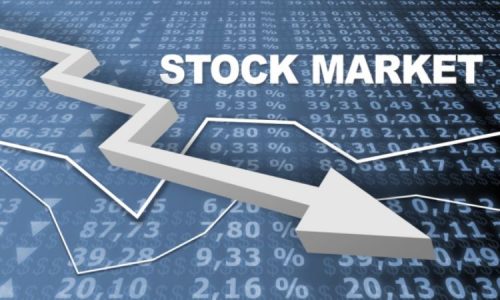
The internet has created a drastic change in almost all spheres of life. It has fuelled digitisation of processes across industries. The way we order food, consume content, shop – there’s hardly any aspect of modern-day living where this impact is not observed. Investing in the stock market is no different.
The Indian stock market has witnessed a colossal change owing to the digitisation of the processes. This has given way to better efficiency and convenience through dematerialization and online trading, making the physical outcry method a thing of the past. Now, it is easier for investors to join the stock market as we can see the number of Demat Account holders more than doubling from 3.6 crores in March 2019 to 7.7 crores as of November 20211.
Today, retail investors are better equipped with knowledge and avenues to invest in the stock market- as rich market data is available in real time on digital platforms. In 2021, almost 45% of NSE’s total turnover in the cash segment came from retail investors2.
Digitisation has ushered in a new era of investing where convenient trading on the go through smartphones has become the new normal. We take a deep dive into various such direct and indirect channels through which digitisation has transformed investing.
Online Trading
A Demat Account can be opened in a matter of minutes today. Everything from filling out an application, uploading documents, depositing funds, and buying and selling shares – can be done online and in no time. A slew of app-based trading platforms has eliminated the tedious task of calling up a broker for every purchase or sale. Investors today can monitor their portfolio, buy-sell shares, seek expert help – all on their smartphones.
The sheer reduction in paperwork is an evident transformation brought about by the Demat Account.
Indicators on Button Click
Analysing price movements has always been a subject of keen interest for regular traders. Over the period, several mathematical studies have developed that gives an indication to future price trends. These indicators are readily available on Demat and Trading Accounts today. One need not know the complex formulae behind them or use graph papers to plot the prices, with just a click, one can bring the indicator on the screen and derive an understanding of price trend to make a well calculated move.
Electronic Stock Exchange
In the years before digitisation, stock exchanges were an outcry floor of brokers and traders. With the IT revolution, this method was substituted by electronic trading platforms or portals where trading is more efficient, swift, and simple. Electronic stock exchanges have increased transparency in the stock market, increased the volume of trading and liquidity, reduced transaction costs, and deepened investor participation.
Reduced Fee
A major benefit extended through digitisation to investors is the reduction of various kinds of fees. The broking operations have become faster and manual interventions have reduced. This has given way to rise of brokers which function digitally with nil or minimal physical branches, offering basic broking services at reduced brokerages. Owing to this transformation, investors today enjoy the benefit of low brokerage charges. Many of the prominent brokers, such as Bajaj Financial Securities Ltd., (BFSL) offers investors the option to open a free Demat and Trading Account through a hassle-free and paperless process.
The table below depicts the features and charges of the different BFSL’s subscription plans:
| Type of charge | Freedom Pack | Professional Pack | Bajaj Privilege Club |
| Yearly subscription charge | First year: free
Second year onwards: 431 |
Rs 2,500/- | Rs 9,999/- |
| Demat AMC | No cost | No cost | No cost |
| Brokerage Charge (Equity) | Delivery: 0.10%
Intraday and F&O: Rs. 17 per order MTF: 18% per annum |
Equity Delivery, Intraday and F&O: Rs. 10 per order
MTF: 12% per annum |
Equity Delivery, Intraday and F&O: Rs. 5 per order
MTF: 8.5% per annum |
Knowledge at Fingertips
Investors and traders need to be on their toes regarding the happenings of the market. Before digitisation, investors had limited ways through which they could research possible investment opportunities. Now, this privilege is no longer restricted to a select few. Today, a wealth of knowledge, including companies’ financial reports, expert analysis, and other financial literature can be accessed on the web, enabling retail investors to trade confidently.
Algorithms and High-Frequency-Trading
Algorithms analyse several aspects of the stock price to place buy/sell orders. Now, it is possible to set a logic in computer and basis that trades get automatically placed in the stock exchange. High-Frequency Trading (HFT) is an automated method of trading used by institutional investors to transact a high number of buy/sell orders in split-seconds. Algorithms and HFT are important features of stock trading, spearheading the Indian stock market into the new millennium.
Bottom line
Digitisation has fuelled India’s stock market boom and paved the way for a new era of increased retail participation. Bajaj Financial Securities Limited is at the forefront of this revolution offering investors paperless account opening, seamless trading, and affordable plans that meet the needs of different investors. With low brokerage charges and trust associated with a legacy brand name, investors can reap the benefits of the growing Indian stock market with confidence and convenience by opening a Demat account with BFSL.
Interesting Related Article: “How Digital Transformation is Transforming the Future of Work“

